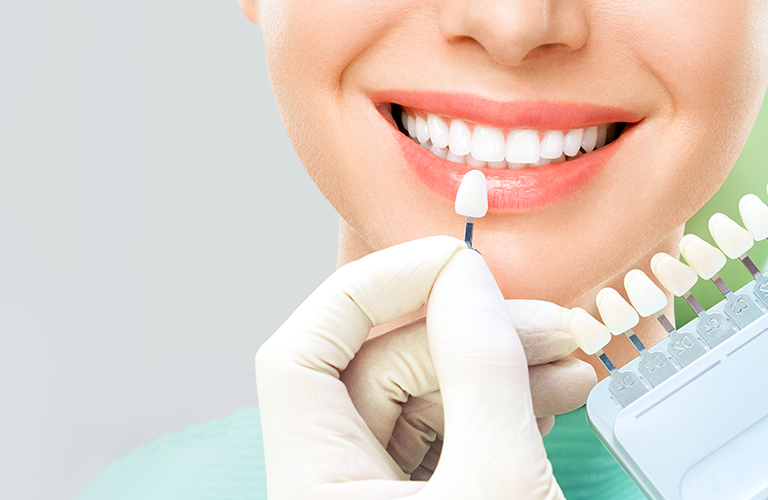Menopause is a significant life transition that affects women’s overall health, including their oral health. Hormonal fluctuations during this period can increase the risk of oral health issues, such as dry mouth, gum recession, and tooth decay. For women, maintaining optimal oral health during menopause requires specialized care and attention. Experts offering family dentistry in Vancouver, WA, understand the unique oral health challenges women face during menopause. We provide personalized care and guidance to help women navigate these changes and maintain a healthy, beautiful smile.
What Are The Oral Health Changes During Menopause?
Here are the oral health changes that women may experience during menopause:
Hormonal Changes
- Decreased estrogen levels: Affects oral health, leading to dry mouth, gum recession, and tooth decay.
- Progesterone fluctuations: These can cause changes in oral tissues and gum sensitivity.
Oral Health Issues
- Dry Mouth (Xerostomia): Reduced saliva production increases the risk of tooth decay and oral infections.
- Gum Recession: Exposes roots, increasing sensitivity and risk of decay.
- Tooth Decay: Changes in oral pH and decreased saliva flow contribute to tooth decay.
- Gum Disease: Hormonal fluctuations increase the risk of gum disease.
- Oral Infections: Fungal infections like thrush and bacterial infections.
- Burning Mouth Syndrome: Hormonal changes cause burning sensations.
- Taste Changes: Altered taste perception due to hormonal fluctuations.
Other Oral Health Concerns
- Osteoporosis: Affects jawbone density, increasing the risk of tooth loss.
- Tooth Loss: Hormonal changes and gum disease contribute to tooth loss.
- Dental Implant Failure: Hormonal changes affect implant success.
- Oral Cancer: Regular screenings are essential for early detection.
| Menopause is a natural biological process marking the end of a woman’s reproductive period, typically occurring between ages 45 and 55. Characterized by a decline in estrogen production, menopause signals the cessation of menstrual cycles and fertility. This transition is confirmed after 12 consecutive months of amenorrhea (no menstruation). |
What Are Oral Care Tips for Women During Menopause?
Here are oral care tips for women during menopause:
Daily Oral Care
- Brush teeth at least twice a day with fluoride toothpaste.
- Use a soft-bristled toothbrush to prevent gum irritation.
- Floss daily to remove plaque and food particles.
- Rinse with mouthwash to combat dry mouth.
Dry Mouth Management
- Use a moisturizing mouthwash.
- Chew sugar-free gum to stimulate saliva production.
- Avoid caffeine and alcohol.
- Stay hydrated with water.
Gum Health
- Massage gums gently to improve circulation.
- Use a gentle toothbrush.
- Visit your dentist regularly for cleanings.
Tooth Decay Prevention
- Limit sugary and acidic foods.
- Use fluoride toothpaste.
- Avoid snacking between meals.
- Visit your dentist regularly.
Additional Tips
- Consider hormone replacement therapy (HRT) to alleviate symptoms.
- Manage stress to reduce oral health impacts.
- Get enough sleep (7-8 hours).
- Eat a balanced diet rich in calcium and vitamin D.
Dental Visits
- Schedule regular check-ups (every 6 months).
- Inform your dentist about menopause status.
- Discuss oral health concerns.
Lifestyle Changes
- Maintain a Balanced Diet: Focus on calcium-rich foods and vitamin D.
- Exercise Regularly: Promote overall health and well-being.
- Manage Stress: High-stress levels can negatively impact oral health.
- Get Enough Sleep: Aim for 7-8 hours of sleep per night.

Final Words
Menopause marks a significant life transition, and oral health is no exception. Hormonal fluctuations can increase the risk of dry mouth, gum recession, tooth decay, and other oral health issues. However, by understanding these changes and adopting proactive oral care habits, women can maintain optimal oral health during this critical phase. Regular dental check-ups, good oral hygiene practices, and lifestyle modifications can significantly mitigate menopausal oral health challenges.
Additionally, consulting with a healthcare provider or dentist about hormone replacement therapy and personalized oral care strategies can provide valuable guidance. By prioritizing oral health, women can navigate menopause with confidence, ensuring a healthy, beautiful smile that lasts a lifetime.

